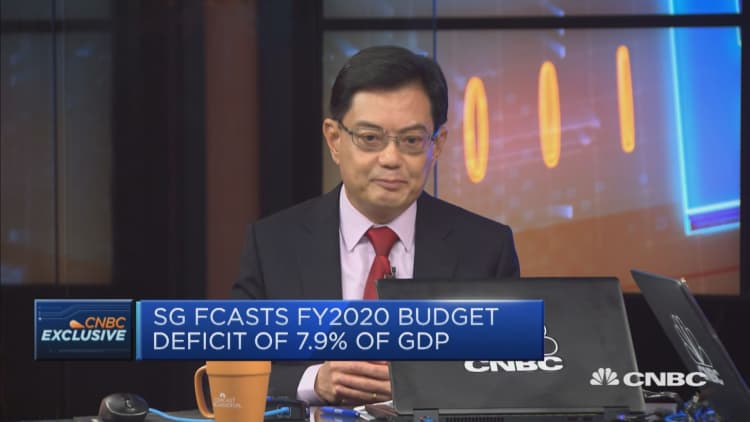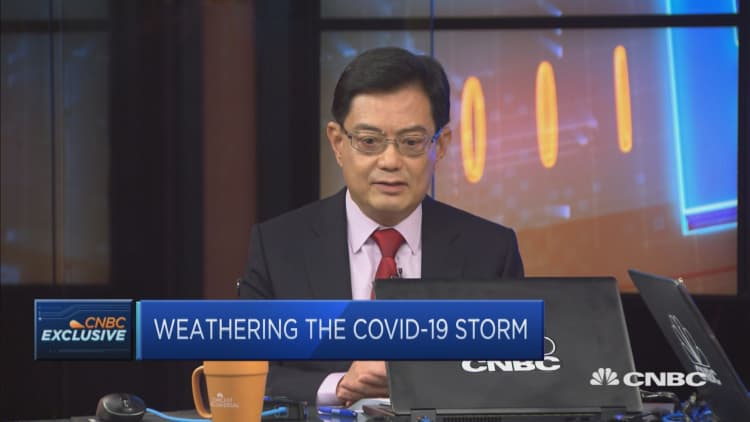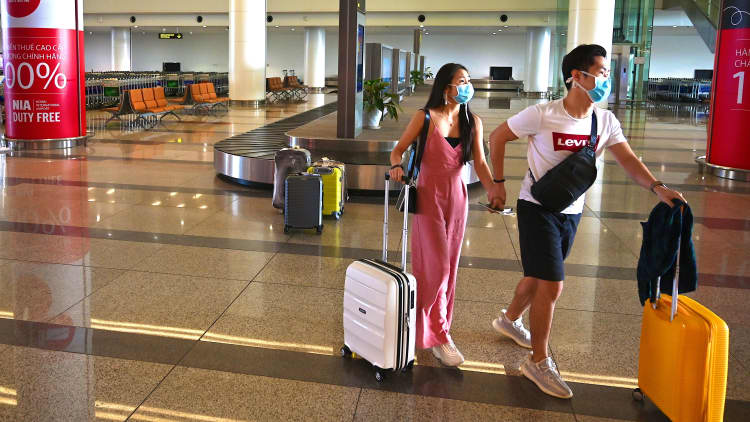
Singapore is a "very open" economy and must prepare for the worst from the coronavirus outbreak that's threatening global public health-care systems, financial markets and economies around the world, said the country's Deputy Prime Minister Heng Swee Keat.
"The Singapore economy is very open and connected. We're a very major business and financial hub, closely integrated with the global economy so this is a serious crisis," Heng, who's also Singapore's finance minister, told CNBC's "Squawk Box Asia" on Monday.
"It is a crisis on three fronts: The public heath-care front, the financial front and the economic front. And these are interacting in unpredictable ways," he added.
Between a complete lockdown and a complete free play as if nothing has happened, we've been calibrating between these two extremes very carefully.Heng Swee KeatSingapore's deputy prime minister
The Southeast Asian country was one of the earliest outside China to report cases of the disease, which has been named COVID-19. Last week, it became one of the first globally to release data on first-quarter economic performance, providing a glimpse of how the virus — which has spread to over 200 countries and territories — could hit the global economy.
GDP contraction, economic downgrade
Singapore's gross domestic product contracted by 2.2% year-over-year and 10.6% quarter-over-quarter in the first three months of 2020, according to official preliminary estimates. The year-over-year contraction was the deepest the country has recorded since the first quarter of 2009 during the global financial crisis.
Heng said in a speech last week that Singapore will likely experience its "worst economic contraction since independence" after official GDP forecasts for this year was downgraded from an annual change of between -0.5% and 1.5% to between -4.0% and -1.0%.

On Monday, the country's central bank, the Monetary Authority of Singapore, eased policy by setting its Singapore dollar nominal effective exchange rate to a 0% annual appreciation path. The country manages its monetary policy through its exchange rate and the policy band measures the Singapore dollar against a basket of currencies of its major trading partners.
The action by the central bank "is an absolutely correct one," said Heng. But he added that "the firepower" for managing the economic fallout from the coronavirus "has to be fiscal policy."
The Singapore government has set aside around 55 billion Singapore dollars ($38.5 billion) — accounting for around 11% of its GDP — in two stimulus packages to soften the economic blow from the coronavirus outbreak.
No complete lockdown
Singapore has reported 844 cases of COVID-19, including three deaths, according to the health ministry.
The country's response to the coronavirus spread involves quickly isolating confirmed and possible cases, as well as tracing people they've come in close contact with — efforts that have won praise from experts around the world, including those from the World Health Organization.
If we are socially responsible, many of these activities can still continue.Heng Swee KeatSingapore's deputy prime minister
As the outbreak grows in more countries, Singapore has taken stricter measures such as closing its borders to visitors and limiting crowd sizes. But the country has stopped short of implementing a complete lockdown, with schools and businesses still open, also those who can work from home are encouraged to do so. More and more restrictive measures at restaurants and public places have also been implemented.
"Between a complete lockdown and a complete free play as if nothing has happened, we've been calibrating between these two extremes very carefully," said Heng. "If we are socially responsible, many of these activities can still continue."



